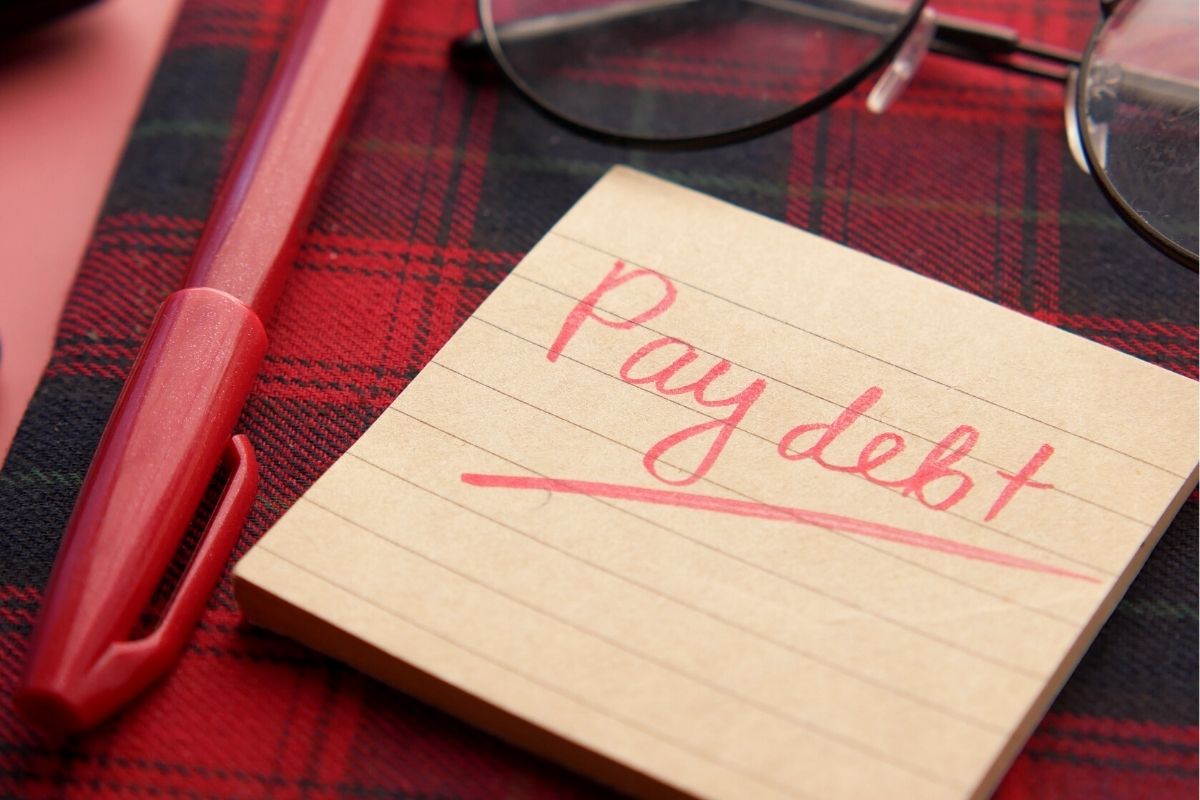Let’s talk about paying down debt.
More specifically, let’s talk about the widely held belief that doing so is “risk-free.”
The truth is, paying down debt is not risk free.
That’s because every action – even a sensible one like paying down debt – has an opportunity cost.
In this article, I’ll review exactly what I mean by that. But first, let’s touch on the obvious benefit of paying down debt.
The Benefit of Paying Down Debt
Let’s say you have some extra cash. You’re trying to decide whether you should pay down your student loans, or use the money for something else.
You might automatically think to use this cash toward paying down your debt.
And that’s not a bad idea in itself.
After all, lowering your debt will reduce your obligations to someone else, which can reduce your stress.
And, at least in the short run, it’s a lot more profitable than keeping the cash earning next to nothing in a bank account.
By paying down the debt, it’s like you’re getting a guaranteed “return” that’s equal to the rate of interest on your debt.
The biggest benefit to paying down debt is the interest that you no longer have to pay on that debt.
Seems like a no brainer? For some, it might be.
But don’t fool yourself into believing that paying down debt is risk-free.
Is Paying Down Debt Risk Free?
The “risk” associated with paying down debt is really an opportunity cost.
That is, putting money toward debt means you can’t put it toward investments that could potentially earn you a return.
Let’s look at an example.
The Opportunity Cost of Paying Down Debt
Let’s say you have a sizeable war chest of $100,000 in cash.
You decide to use that cash to pay down debt, which has an interest rate of 3%.
In this scenario, your annual savings would be the 3% in interest that you no longer have to pay on the $100,000 in debt.
So you’d have an extra $3,000 in savings the year after paying down that debt.
But what if you had invested that money instead?
You could take that same cash and invested it in something that earned you a 7% annualized return.
This would net you about $7,000 per year.
Naturally $7,000 is significantly bigger than $3,000.
That’s a gain of $4,000 over what simply paying down your debt would earn you.
So, in this example, the 3% “return” of paying down debt is beaten by the 7% return on your investment.
Paying down the debt is not such an obvious choice.
Losing Out on Potentially Greater Returns
As you can see from the example above, paying down debt can result in losing out on potentially greater returns.
Of course, in the real world, we don’t have the benefit of hindsight when making investments.
So some people might shrug their shoulders at that extra potential $4,000 per month. There’s a risk that it doesn’t actually pan out.
And the peace of mind resulting from being debt free could trump the potential of making higher returns.
After all, paying down debt is effectively guaranteed savings.
Investing is a whole lot less certain.
But your upside by paying down debt is fixed. Your upside when investing is technically infinite, at least in many cases.

Should You Pay Down Debt Early?
So, should you pay down debt early?
The answer to this question requires that you understand that there is always a risk-reward tradeoff in investing.
Here’s the general idea of this tradeoff: the higher the expected return of an investment, the higher the risk that’s generally associated with that investment.
Paying down debt is a low risk activity. You know that you’ll be paying down that interest. And, therefore, from an investing perspective, it’s a guaranteed “return” of 3% per year. There’s little to no variance involved with this decision.
By taking lower risk, you’re forgoing a potentially greater return in exchange for less risk. But it could be worth it for a number of reasons.
For one, you get the resulting feeling of freedom.
When you don’t have any debt, and you no longer have those hefty monthly payments looming over your head, you might be willing to take greater risks elsewhere. You might be able to sleep easier at night. You might become happier.
And you can’t really put a price on that.
It’s incredibly hard to quantify since it’s entirely dependent on your goals.
For many, peace of mind is paramount, which is a great reason to opt for paying down debt over making other investments.
Which Opportunity Cost Will You Choose?
The point is, there’s always an opportunity cost involved with how you spend or invest your money.
It’s inescapable.
In some cases, like the feeling of freedom that results from being debt free, it might be hard to quantify.
And in others, like opting for a higher risk, higher potential reward investment, it’s a bit clearer to value.
Whether or not you decide to pay down debt early entirely depends on your appetite for risk and your assessment of the opportunity costs involved.
Remember, your debt has a cost to keep open. But it also has a cost when it’s paid off using cash from somewhere else.
The question is, which cost is more valuable to you?
But, above all, paying down debt is not risk free.
There’s a cost to every choice.
This website, and any communication stemming from it, while hopefully informative, should not be taken as financial or legal advice. Assume all links are affiliate links. I am an Amazon affiliate.


